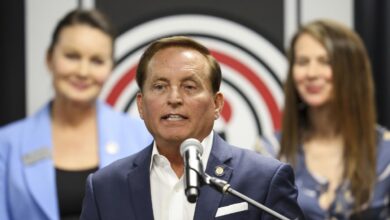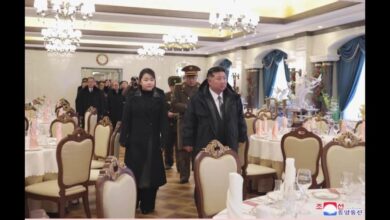Pozniak: NoLa offers lessons in what not to do

In the immediate aftermath of the Jan. 1 Bourbon Street terrorist attack, the Boston Herald ran an editorial declaring that this was a security wakeup call for all communities in Massachusetts. The paper’s editorial is spot on. It is imperative that mayors, town managers and public safety officials immediately review and fine tune their crisis prevention and response plans.
By proactively planning and training, communities can significantly mitigate the impact of a terrorist attack, safeguard their populations and ensure a quicker recovery from such traumatic events. This is why the mayor and police chief of Salem have already met to discuss improvements to safety plans for their 2025 Halloween festivities that attract 100,000 visitors. Boston City Councilor Erin Murphy has rightfully requested a hearing to discuss enhanced security at major public events in Boston. City councilors and select board members statewide should request that increased crisis planning and training take place in their communities.
An effective crisis response plan requires collaboration among local and regional police, fire, EMS, hospitals and state and federal agencies. These plans must be regularly updated to address lessons learned from the latest mass causality incidents. An important component of this plan is effective media relations.
The nationally televised media briefing by New Orleans officials the day after the attack was one of the worst I have ever seen. On the stage were more than 20 people, politicians and community leaders, creating the impression of a disorderly group of publicity seekers, two of whom were laughing with each other, another chewing gum.
The FBI spokesperson appeared to have never received media training as she nervously read her statement at a speed so fast that it was difficult to process the information. There were various politicians who muscled their way to the podium and who took hostile shots at the reporters covering the briefing. The contradictory messaging from federal and local authorities about whether there was one or several terrorists responsible created additional fear and anxiety. All of this was broadcast live.
This was a disastrous, embarrassing and out-of-control briefing which I directly attribute to a lack of crisis communications planning and training by federal and city officials and the egos of politicians who had no right to clutter the stage.
Well conducted and controlled media briefings during a crisis are required to strengthen public trust in government and emergency agencies. Transparent and consistent messaging, by those who have undergone expert media training, demonstrates accountability and competence. Ultimately, effective media briefings are not just about sharing information: they are about managing emotions and expectations. It’s about helping the public navigate the aftermath of a disastrous event with clarity. Communities must take this to heart and not repeat the communications crisis we witnessed in New Orleans.
Billerica resident Rick Pozniak has decades of experience and expertise in crisis communications which he has taught at colleges and professional conferences nationwide




